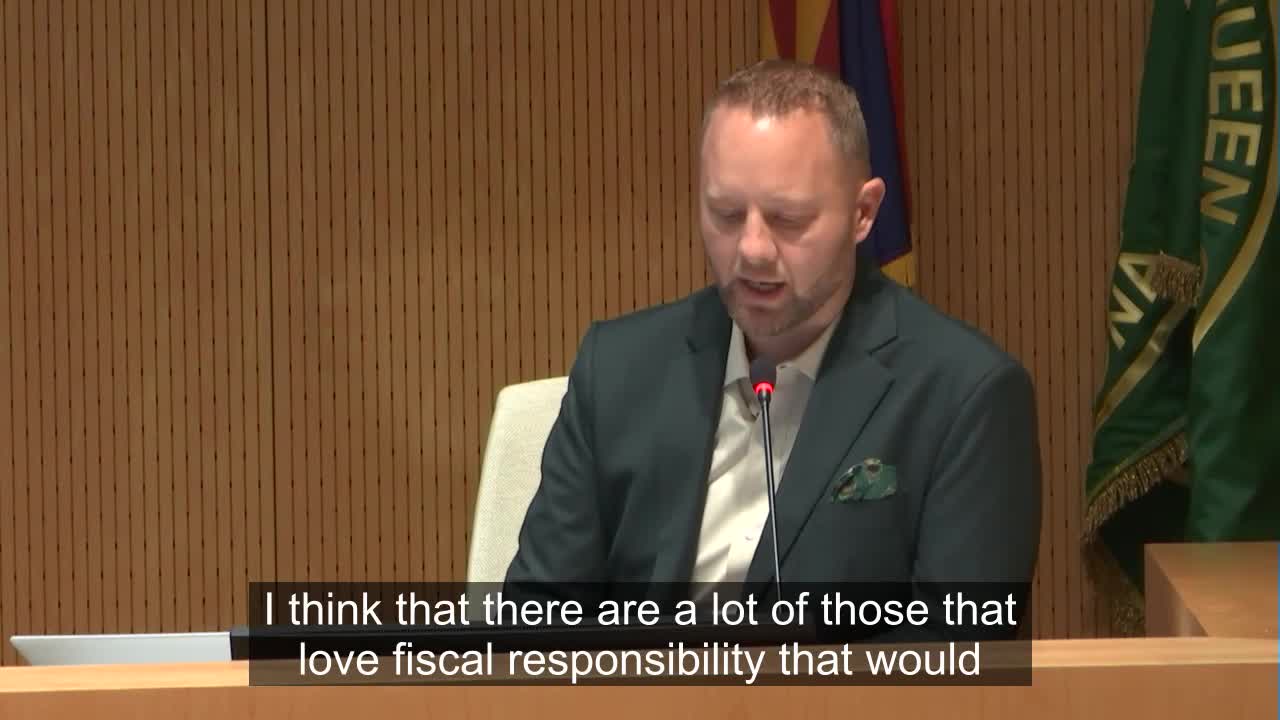Article not found
This article is no longer available. But don't worry—we've gathered other articles that discuss the same topic.
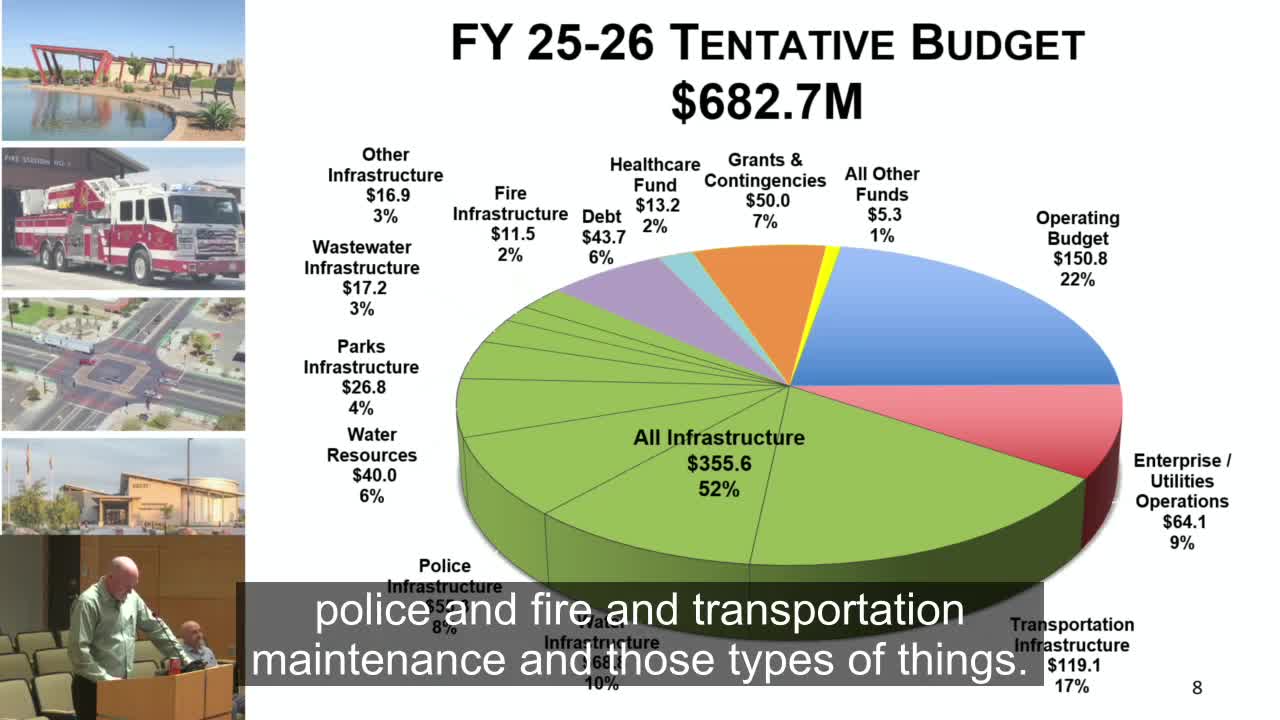
MAG study presents mobility options for Queen Creek; near‑term candidates include microtransit and TNC partnerships
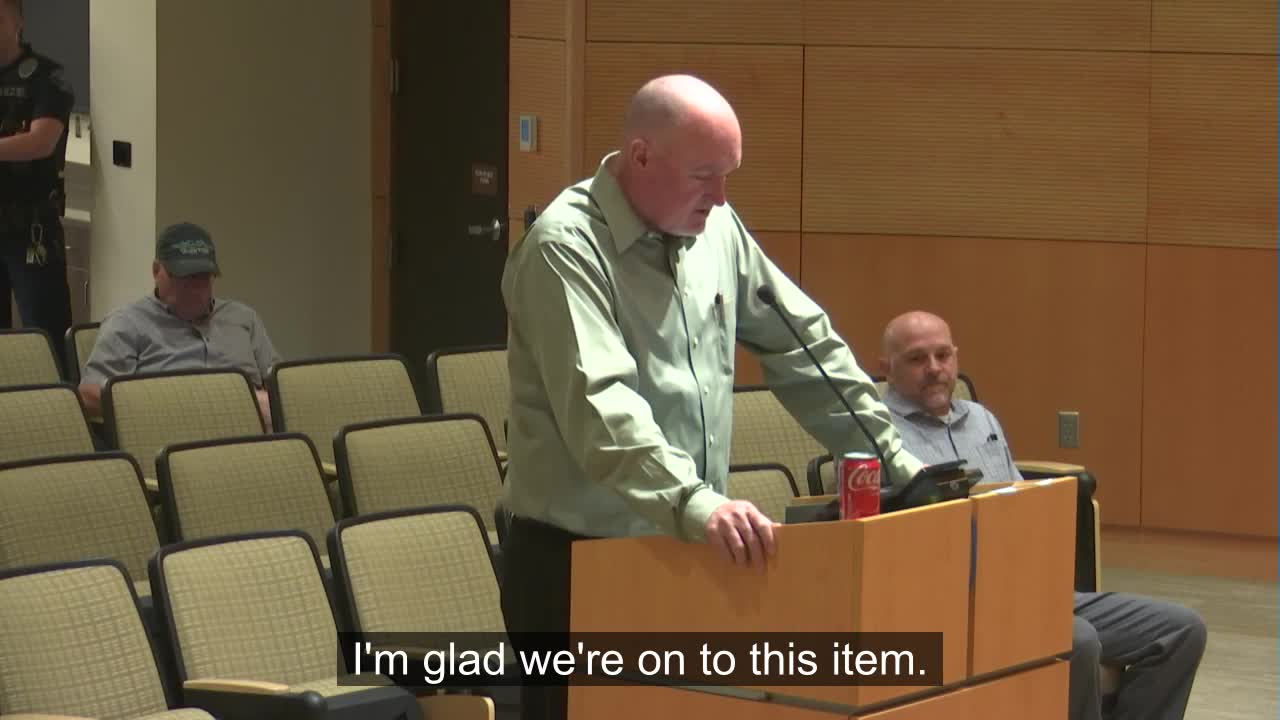
Council approves FY2026 tentative budget after debate over contingency and park spending
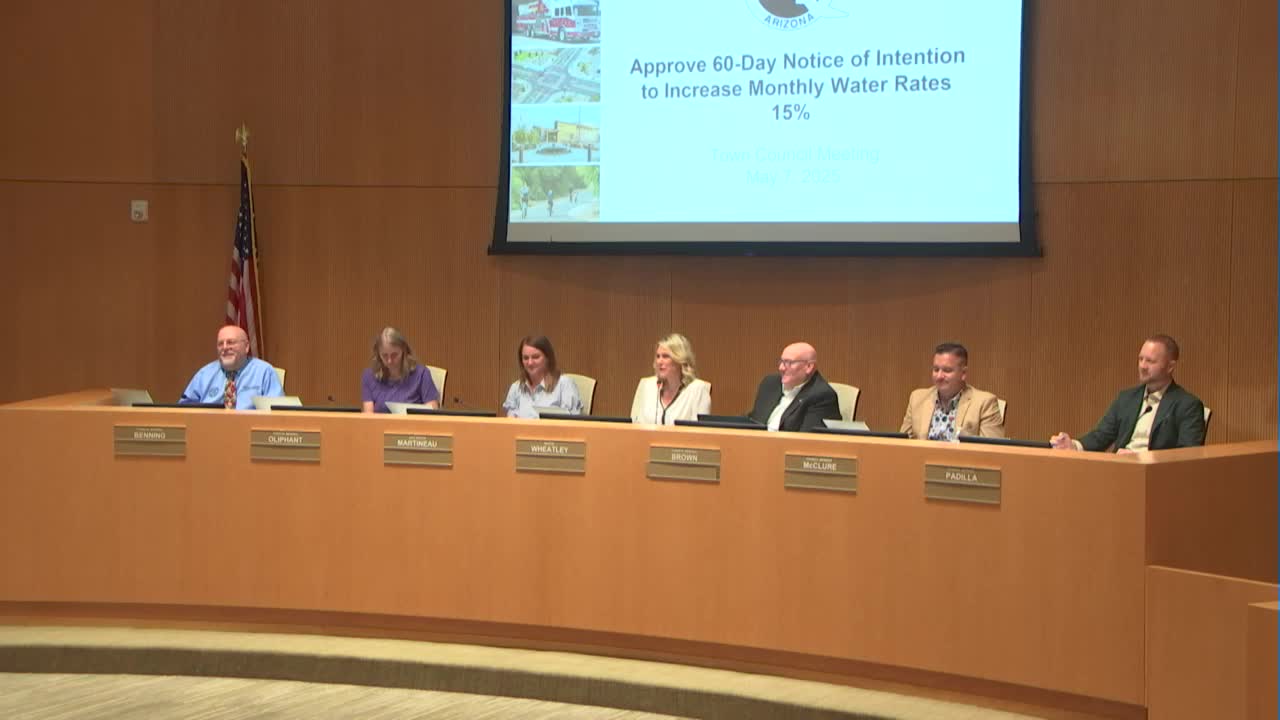
Council restarts water-rate process; sets July public hearing on proposed 15% increase
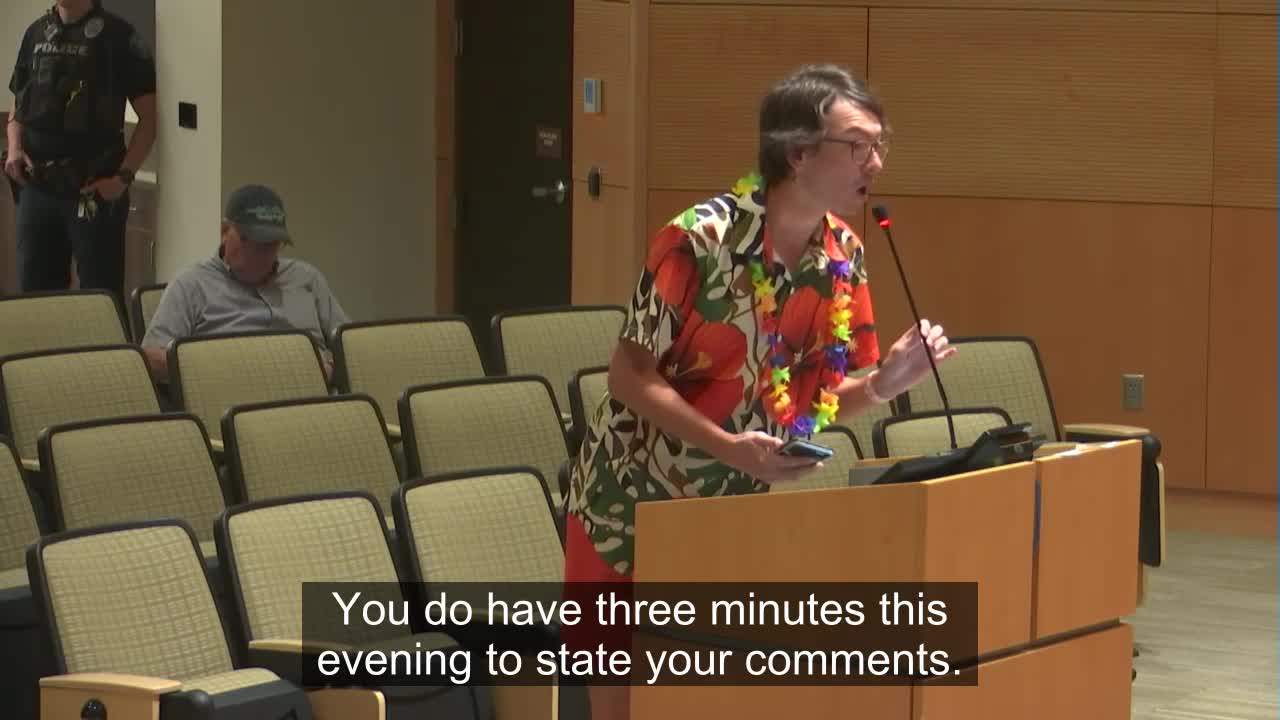
Town Council approves $15 million park land purchase; Padilla objects
